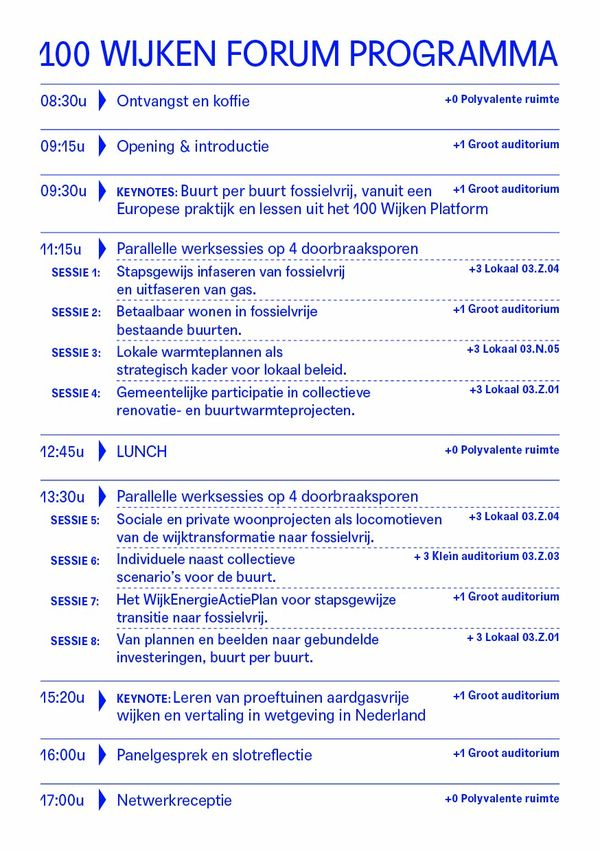The 100 Neighbourhoods Forum disseminates the knowledge accumulated within the 100 Neighbourhoods Platform – a learning and development environment that supports pioneering cities and municipalities in accelerating the integrated realisation of climate and energy goals in existing neighbourhoods – to a broader community of practice.
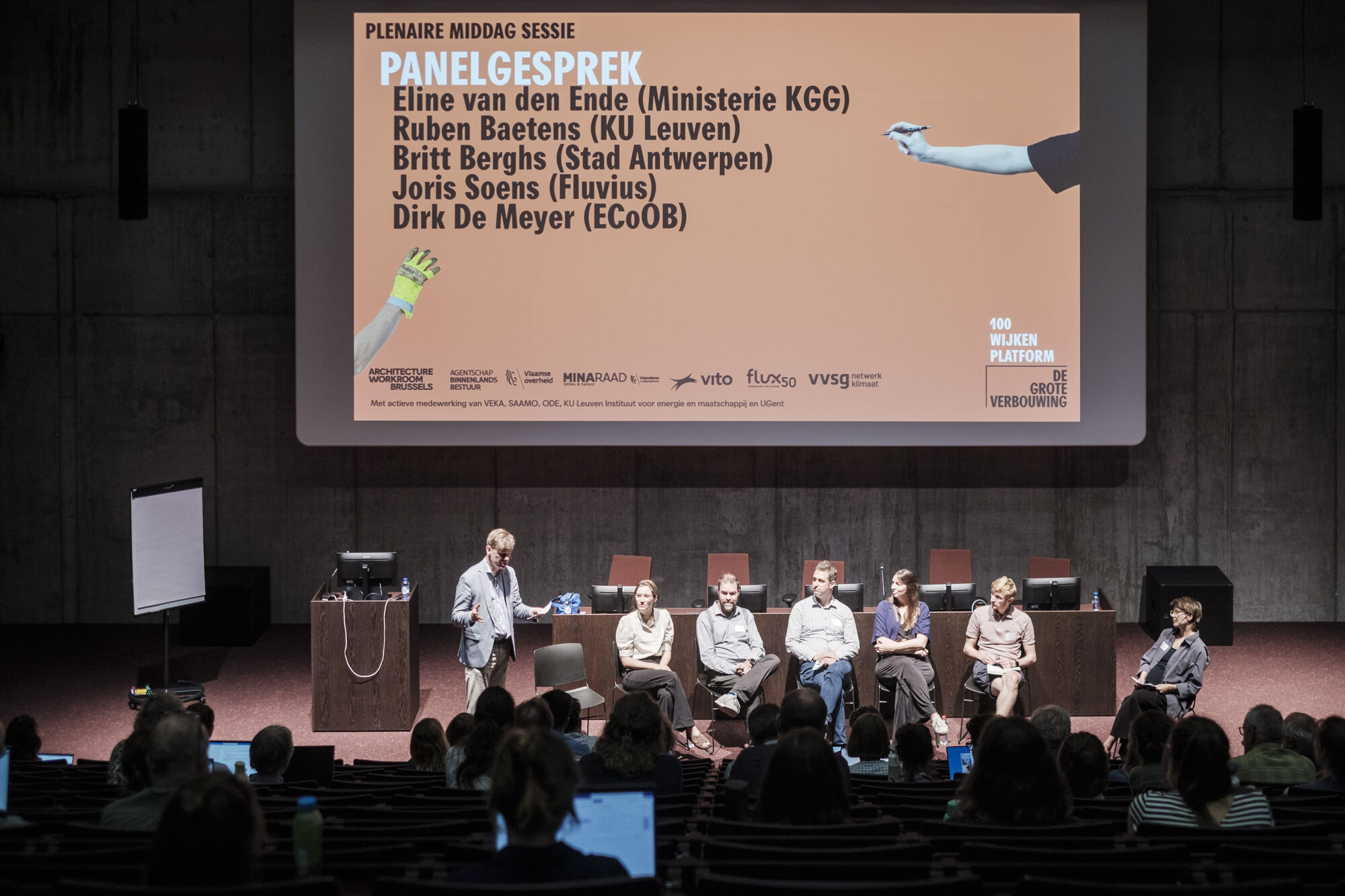
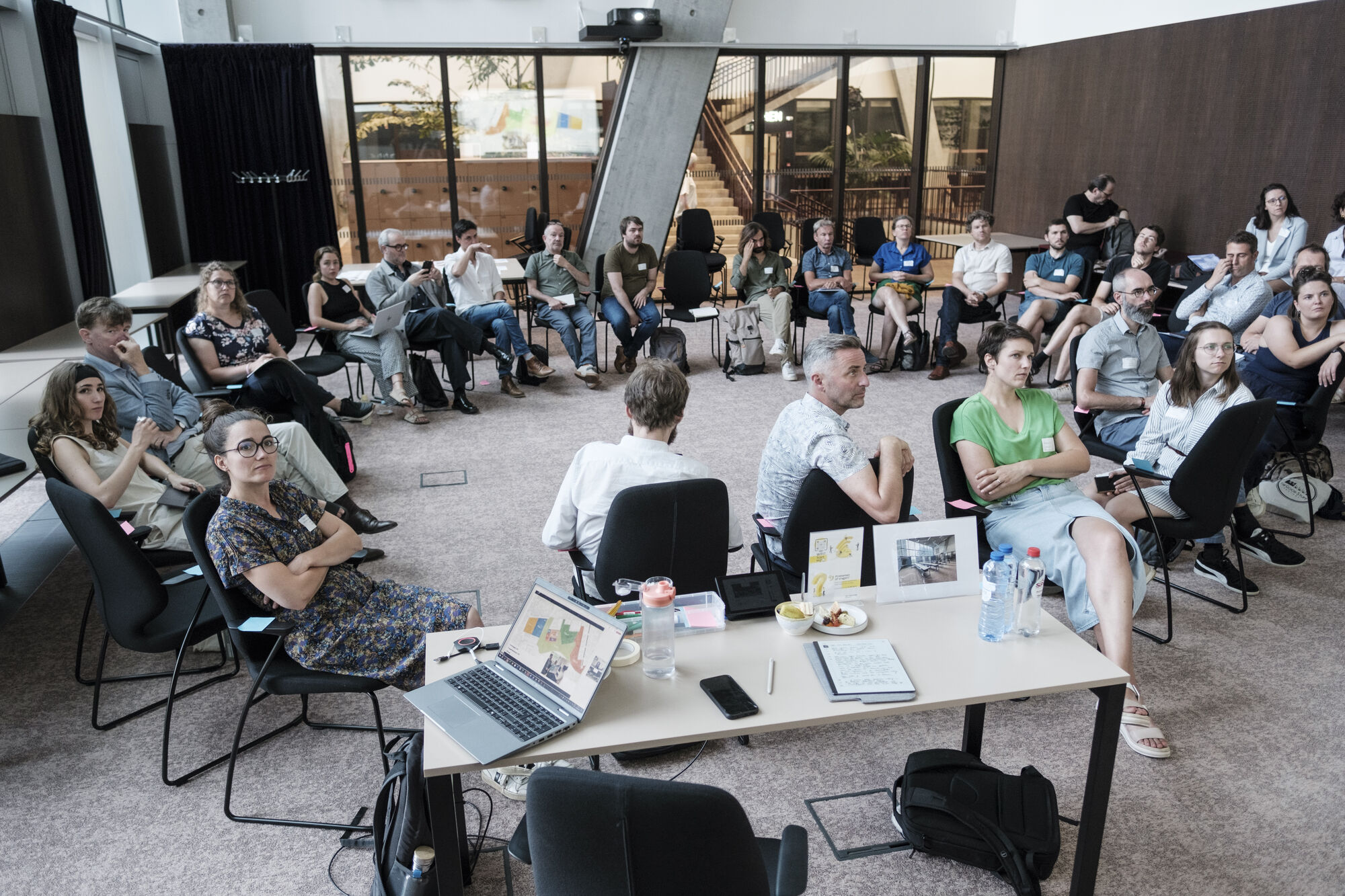
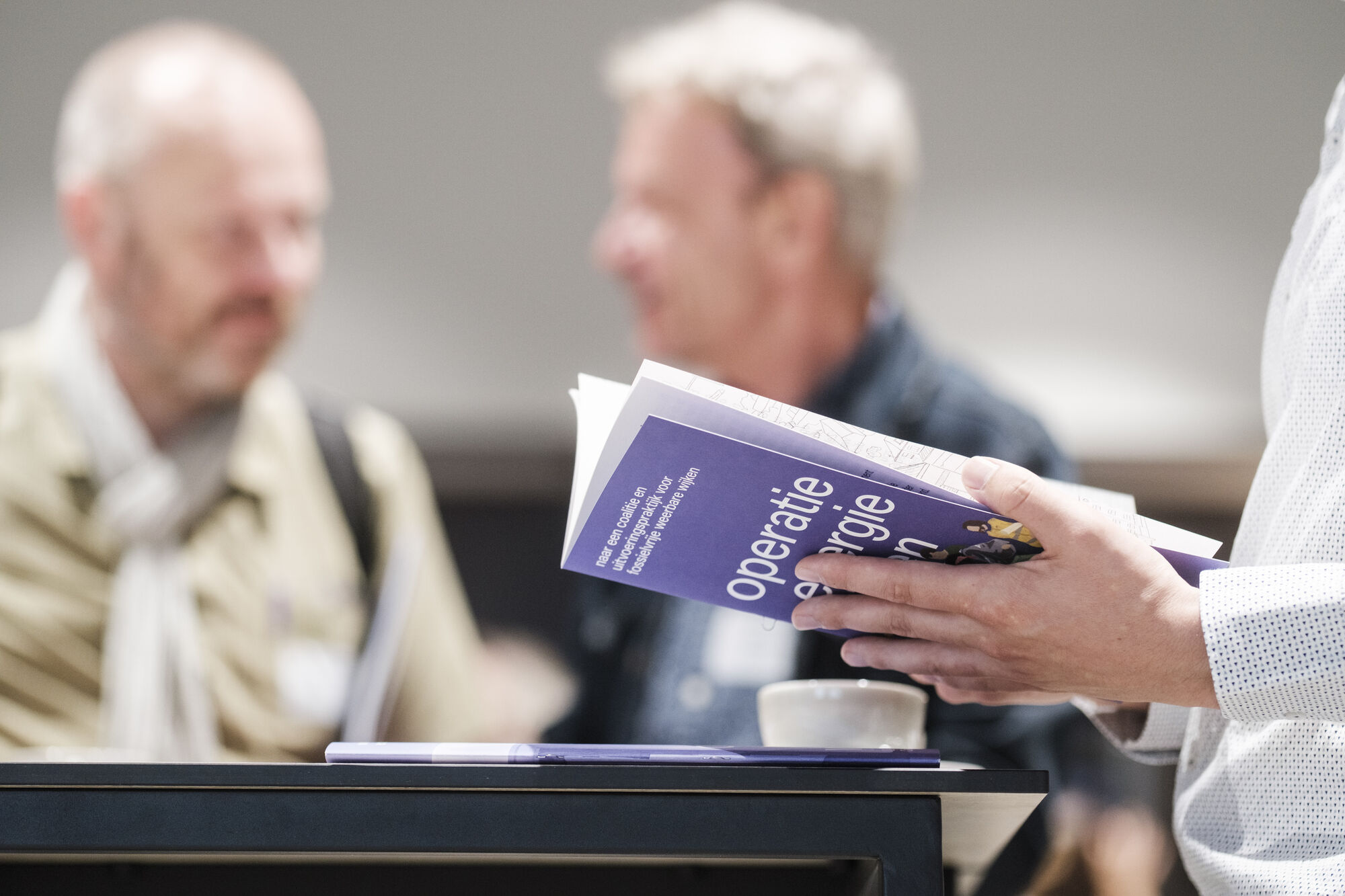
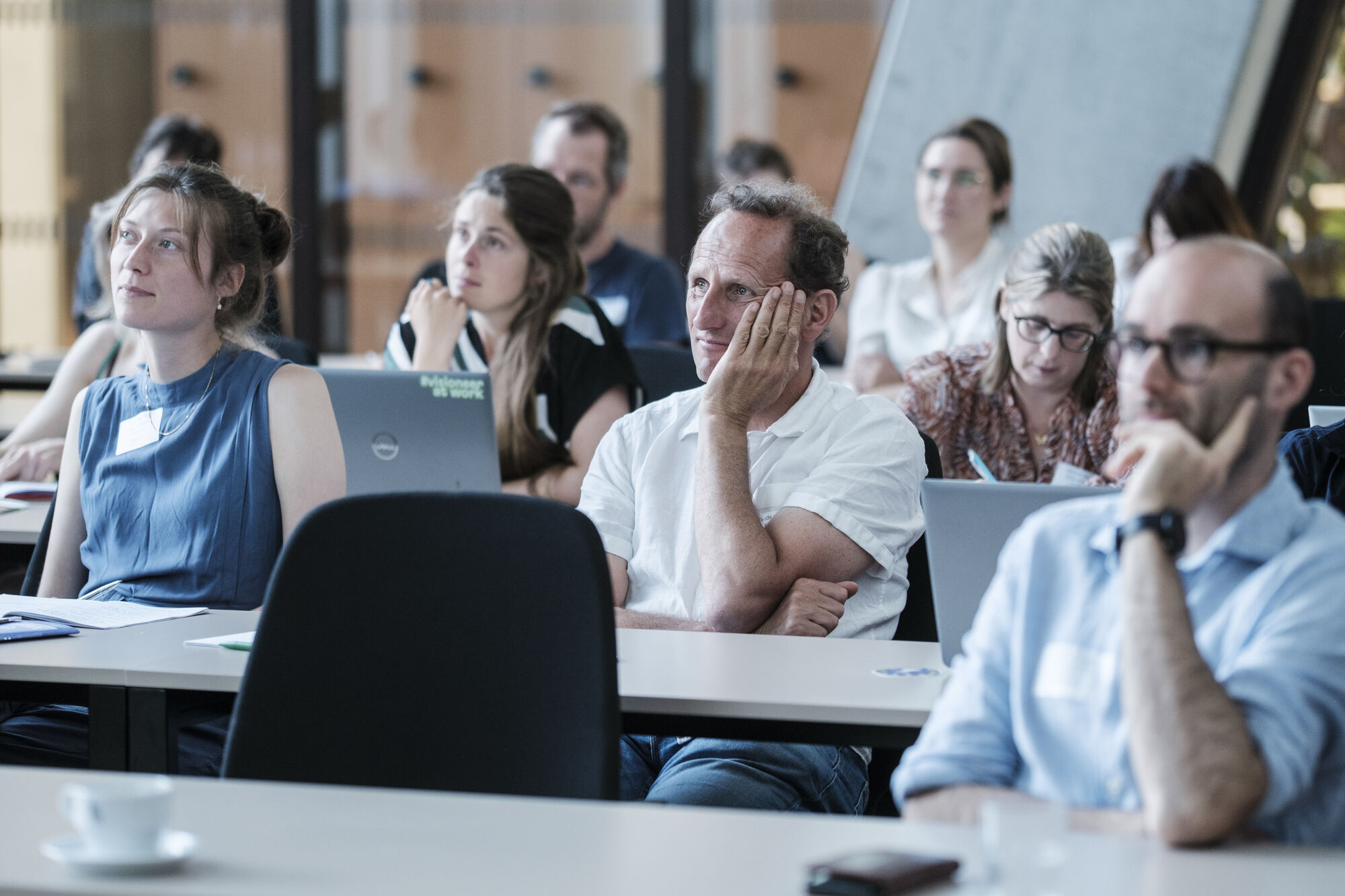
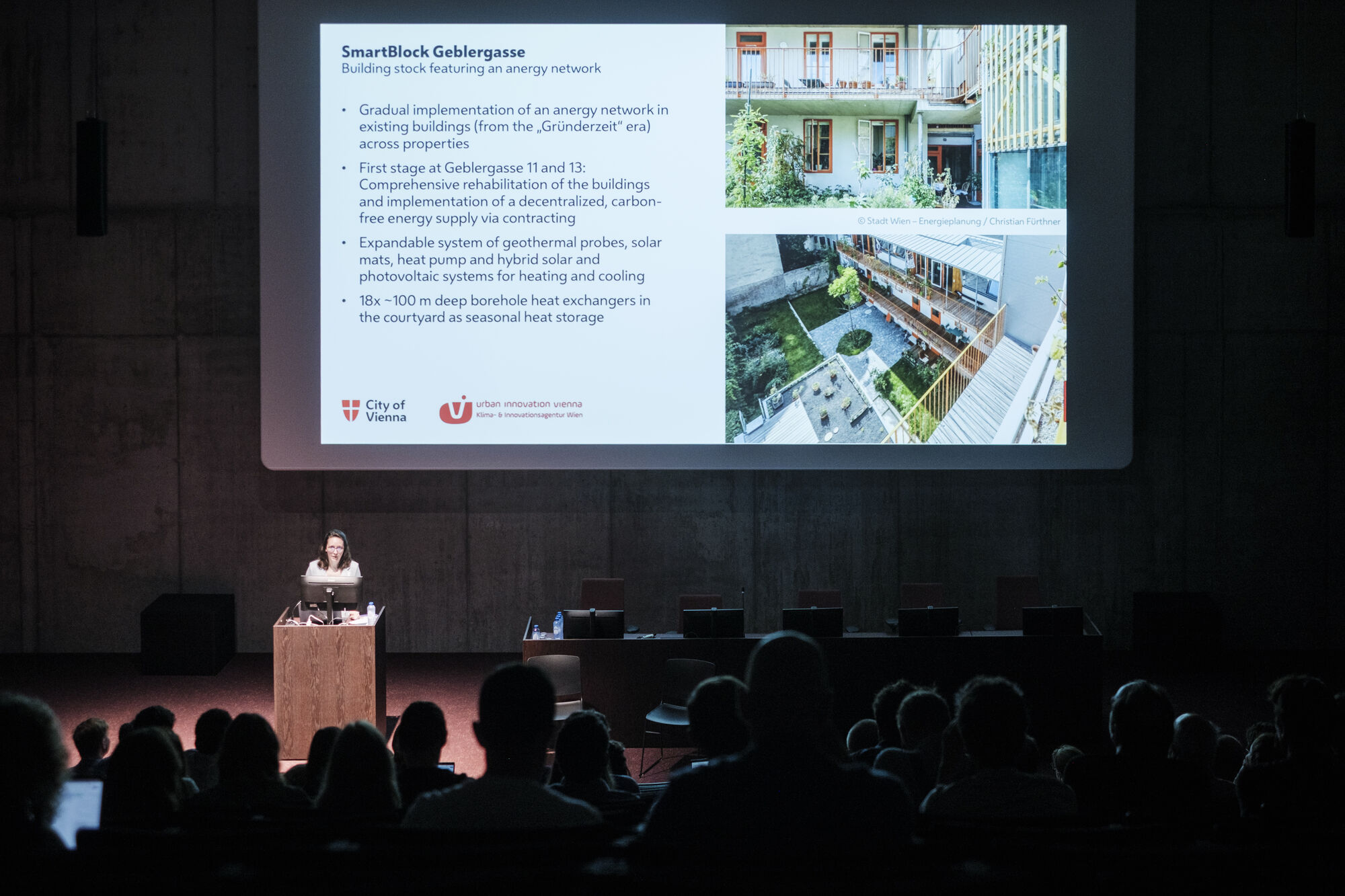
The second edition of the 100 Neighbourhoods Forum took place on 30 June 2025 and had as its motto “accelerating towards fossil-free neighbourhood by neighbourhood”. The forum thus represents an important milestone in the Energy Neighbourhoods Operation, a collaboration between local authorities, experts, advisory councils, researchers and policymakers to further address the energy transition of our existing neighbourhoods as a shared task.
There is a loud call to join forces around an integrated, neighbourhood-oriented approach to energy transition. Because where the house-by-house energy transition reaches its limits, the pioneers within the 100 Neighbourhoods Platform provide the building blocks for a neighbourhood-oriented and integrated approach. Building on the work of these pioneers, the working exhibition Operation Energy Neighbourhoods translated these building blocks into action fronts for a joint approach. The exhibition was therefore an invitation to work from a broad coalition on a breakthrough programme to accelerate the transition to fossil-free neighbourhood by neighbourhood.
This joint programme was presented for the first time at the 100 Neighbourhoods Forum and refined throughout the day. To further fuel ideas around this Flemish approach, we learned from keynotes on the Viennese programme “Phasing Out Gas” and Dutch legislation on collective heating. The foreign examples clearly show that a neighbourhood-oriented approach works, provided there is a clear local organisational structure and a legislative supra-local framework!
The shift from a house-by-house energy transition with a focus on the individual to a neighbourhood-oriented approach is a true paradigm shift that naturally raises many questions. What are the different possible solutions: which temperature regimes offer the most opportunities? What about renovation needs and requirements for a collective heat supply? How do we define an affordable model for residents and providers? How do we organise ourselves for this: what agreements are needed between local government and the heat network developer? How do we get large customers on board and how do we coordinate different investments? What can heating and cooling plans achieve and what can't they achieve? How can we embed the coordinating role of local authorities?
These questions were explored further in eight parallel breakthrough sessions. In smaller groups, the pioneers, together with all participants in the 100 Neighbourhoods Forum, provided the building blocks for a Flemish approach. This revealed a high level of readiness in the field, but at the same time the need for a facilitating framework and a programme that coordinates and supports the implementation of the transition to fossil-free neighbourhoods.
